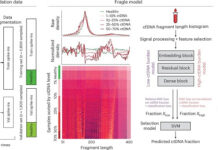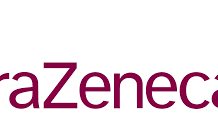To commemorate National Doctors Day on July 1st, 2024, our editorial team sought insights of doctors on various aspects of their professional lives.
Their views are presented here.
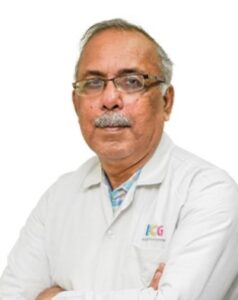

“Healthcare system as a whole and doctors in particular can contribute significantly, not only in patient care but also for the overall well-being of society. A strong doctor-patient relationship created on the foundation of medical expertise, compassion, and empathy is the cornerstone of improved health outcomes and community well-being. The medical profession has also a huge role to play during public health emergency which can be defined as an emergency need for healthcare services to respond to a disaster, a significant outbreak of an infectious disease, bioterrorist attack or other significant or catastrophic event. Collectively, during the period of community medical emergency, physicians should provide medical expertise and work with the government to develop public health policies that provide the best team approach and also the best information which reduces panic and allows the population to take proper preventive and curative steps. The prime object of a medical personnel is to render service to humanity upholding the dignity and honour of his profession, not allowing any conflict of his own financial interest to intervene with the best interest and integrity of the patient. A doctor needs to stick to the 4 principles of ethics constituting: beneficence, nonmaleficence, autonomy, and justice. “Helping the sufferers without Harming” should be the goal for a doctor on this auspicious day, July 1st.”
– Dr Urman Dhruv is the Director of Department of Internal Medicine and Diabetes at HCG Hospitals, Ahmedabad.
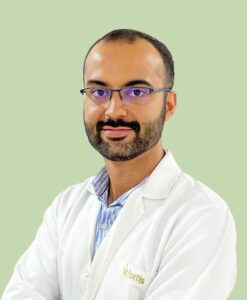

“The weight of responsibility, long hours, and demanding workloads put doctors at a significant risk for burnout, depression, and other mental health struggles. Studies show a high percentage of doctors experience mental health issues, often linked to factors like inflexible work environments and a culture that discourages seeking help. This has serious consequences for both doctors and patients, as mental health struggles can impact the quality of care provided. Doctors are needlessly put on a pedestal as near-divine figures, yet they’re the first to be blamed when things go wrong, even for issues outside their control. There’s a growing recognition of this problem, with efforts to improve support systems for doctors and reduce the stigma around mental health within the medical profession.”
– Dr Sachin Baliga is a Consultant – Psychiatry at Fortis Hospital, Bannerghatta Road, Bengaluru.
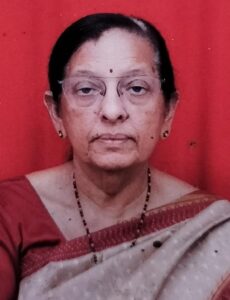

“We often ask students ‘Why did you choose to enter the medicine profession? Is it by choice or force?’ We had no aptitude test at our time. Also, there were not many choices earlier especially for girls. But we considered it our good fortune that we got medicine. I recall my grandmother telling me very often that ‘You will grow up to be a big doctor someday.’ It is her blessings, I believe, that I have reached to my present position and I hope I live up to her expectations. I must confess that I have absolutely no regrets. I have thoroughly enjoyed my journey as a student, resident and faculty in a teaching hospital. The biggest lessons in life come by interacting with patients who come from different strata of society. If you give them time, they give you much in return which is very satisfying. We used to be considered as Gods: it may not be the case now even though we did great human service in COVID times. Yet, we must continue to be empathetic and maintain confidentiality. We must follow the Hippocratic Oath that we take on our graduation. In India, there is going to be a constant need of doctors who will practice clinical medicine and I would always encourage young students to take up medicine. There is always light at the end of a tunnel.”
– Dr. Nivedita Moulick is a Professor of Medicine at D.Y. Patil Medical College and Hospital, Mumbai.
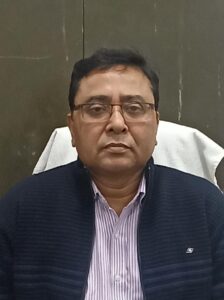

“It is no secret that public health has immense role not only in protecting and promoting health of individuals and their communities but also holding a key stand in the mission towards universal health. Health education and communication is the backbone in public health for understanding the community’s practice, to clarify misconnects and promote healthy lifestyle. Unfortunately, the skill and intent of communication in present generation of public health doctors is in declining trend. The young doctors are seemed to be more interested in clinical practices spending little time in interaction and health education. May be the lack of robust public health vision, facilities and infrastructure in most of Medical Institutes are root causes for such trend. It is therefore the need of the time to address such issues to strengthen the public health in reality rather than glorifying its role in paper and scientific meet or conferences.”
– Dr. T. K. Ray is Director Professor in the Department of Community Medicine at Lady Hardinge Medical College and Associated Hospitals, Delhi.
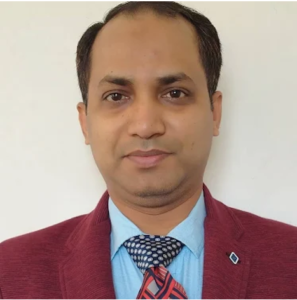

“On this Doctors Day, we honor the crucial role of medical professionals in public health crises, patient care, and equitable health coverage. The Indian Practitioner, since 1947, has been a consistent companion to these medical professionals, supporting them through the journey of medical research and evidence-based medicine. The contents of his journal help researchers and innovators highlight the importance of medical ethics the doctor-patient relationships and current medical evidence. By disseminating cutting-edge research and expert insights, The Indian Practitioner empowers doctors to mitigate crises, uphold ethical standards, and provide global standard of care, reinforcing their invaluable contributions to society.”
– Dr. Imran Ahmed Khan is a Senior Resident in the Department of Community Medicine at BRD Medical College, Gorakhpur.
Kind Attention
The next feature or Reflections will be on World Hepatitis Day on July 28. The Indian Practitioner invites medical experts in these domains to share their views through a 50-100-word write-up. Kindly send your views, along with a passport-size photo and a brief bio, to theindianpractitioner@gmail.com by July 27.






